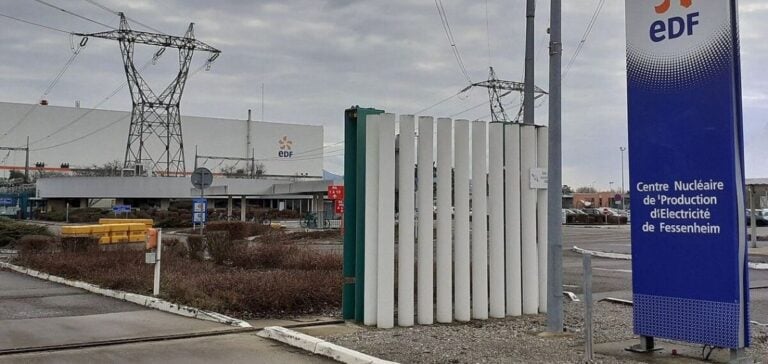The technocenter project proposed by EDF in Fessenheim (Haut-Rhin) is facing growing controversy. The site is intended for the recycling of very low-level radioactive metals from the decommissioning of French nuclear facilities. Despite the stated goal of transforming these metals into ingots for various uses, the methodology of the public debate launched by the National Commission for Public Debate (CNDP) is under scrutiny.
Criticism from the associations
On Wednesday, three local associations — Alsace Nature, Stop Fessenheim, and Citizens Vigilant of the Fessenheim Area — announced their withdrawal from the consultation. They denounce a process they consider biased, pointing to the disproportionate speaking time granted to EDF, the project’s proponent.
In a joint statement, they said: “We must acknowledge that instead of a debate, we are facing a biased monologue. The conditions for balanced exchanges are not met.” The organizations also criticized the lack of clear answers to questions posed during public meetings.
A call to revise the consultation
The associations are urging EDF and the CNDP to fundamentally rethink the consultation framework. They demand more neutral facilitation and accessible information to ensure a clear understanding of the project’s stakes. According to them, without these adjustments, the current consultation would be nothing more than a “mockery of a debate.”
EDF, for its part, asserts that the findings from these discussions will help prepare the necessary authorizations for launching the project. The company emphasizes the importance of this process in addressing local concerns and ensuring transparency regarding environmental and economic impacts.
A climate of distrust
The project, located on unused land from the decommissioned nuclear power plant shut down in 2020, faces growing skepticism. While EDF highlights the reduction of radioactive waste and the development of a circular economy, some local actors fear unanticipated consequences for the region’s environment and economy.
The National Commission for Public Debate has yet to respond to the associations’ criticism. However, the management of public consultations in the nuclear sector could become a strategic issue for EDF’s future development projects.






















